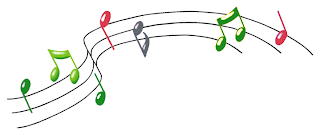The phrase "hymns which they recite" is particularly interesting. The pagan official Pliny, quoted in an earlier post in this blog, used the same phrase (Latin carmen dicere). Does it suggest that hymns were spoken rather than sung? Philo, quoted above, suggests that singing happened but still uses "recite". Historian Ralph Martin has studied this phrase in a number of historical contexts and you can find his article here.
We could usefully bring in Augustine of Hippo here, who in the 4th century described church singing in Alexandria as more like speaking than singing. Perhaps there was a specific reason for this. Pipe, harp and drum were intimately linked to the pagan cults, e.g. of Pan, with their sensuous worship and often shameless revelries. Christians, mindful of the apostolic direction that everything should be done decently and in order [1 Corinthians 14:40], avoided musical instruments. Jerome, also 4th century, wrote that a Christian maiden ought not even to know what a flute is, or what it is used for.
Liturgy (an order of service with fixed elements) came in early to Christian worship. there is evidence of a 'Jerusalem' liturgy, instituted by the Apostle James, and an 'Alexandrian' liturgy attributed to Paul's fellow-labourer John Mark. Singing was a key element, but in the stylised manner of Jewish psalmody and response singing. As John Chrysostom puts it:
David formerly sang in pslams, and we also sing today with him. He had a lyre with lifeless strings; the Church has a lyre with living strings. Our tongues are the strings of the lyre, with a different tone, certainly, but with a more seemly piety.



